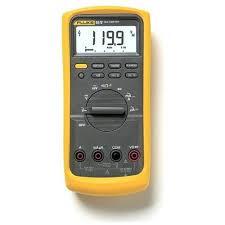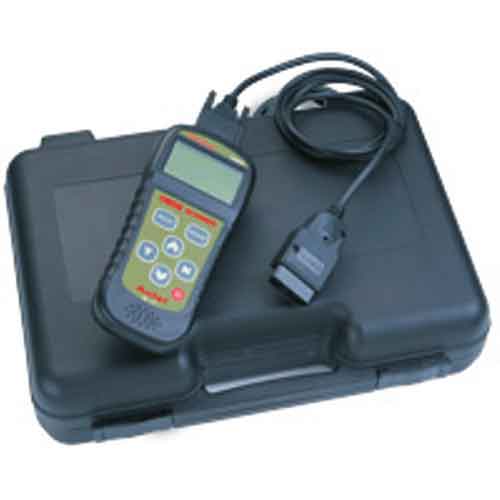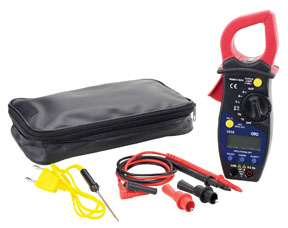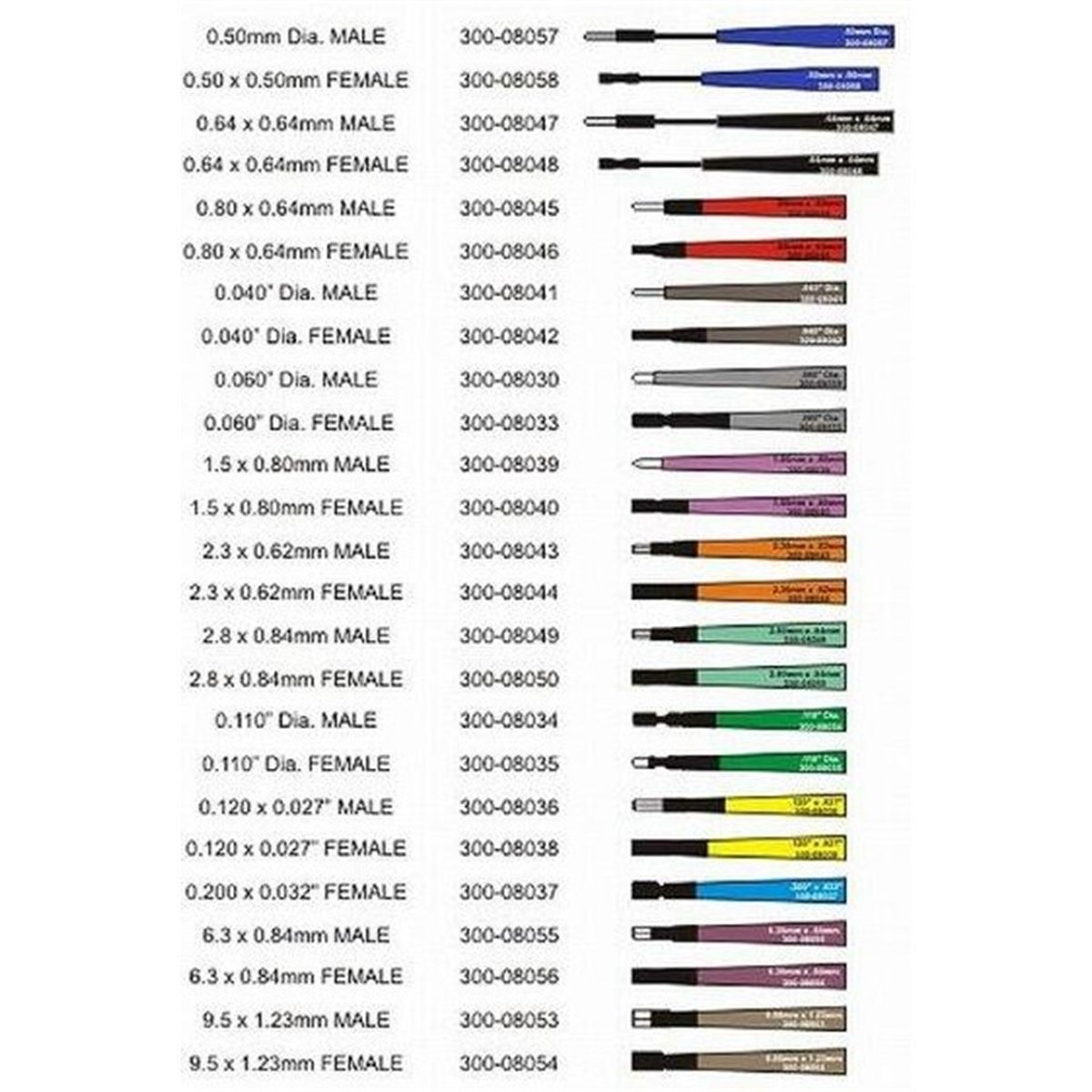Introduction
As a mechanic, being able to diagnose and solve automotive problems efficiently is essential to your success. To get to the root of the problem, you need the right diagnostic tools in your arsenal. These tools not only save you time but also help you provide accurate solutions for your customers. In this article, we will explore the essential diagnostic tools that every mechanic should have.
From code readers and scan tools to multimeters and fuel pressure testers, the market offers a wide range of options. However, choosing the right tools can be overwhelming. That's why we're here to help. We will break down the must-have tools, discussing their features and benefits, so you can make informed decisions.
Whether you're a seasoned mechanic or just starting out, having the right diagnostic tools is crucial. They empower you to identify the root cause of vehicle issues accurately, saving you time and effort. So, let's dive in and discover the essential diagnostic tools that will take your automotive repair skills to the next level.
Importance of Diagnostic Tools in Automotive Repair
Diagnostic tools play a pivotal role in the automotive repair industry. They enable mechanics to quickly and accurately identify the underlying issues in vehicles, allowing for efficient repairs. Without these tools, mechanics would have to rely on guesswork, leading to unnecessary repairs and wasted time.
The use of diagnostic tools not only improves the quality of repairs but also enhances customer satisfaction. By pinpointing the root cause of a problem, mechanics can provide accurate estimates, saving customers from unnecessary expenses. Additionally, diagnosing issues accurately helps mechanics build trust with their clients, leading to repeat business and positive word-of-mouth referrals.
Investing in quality diagnostic tools is an investment in your business. While they may seem costly upfront, they pay for themselves in the long run by reducing diagnostic time and increasing the efficiency of repairs. With the right diagnostic tools, you can confidently tackle any automotive problem that comes your way.
Common Types of Diagnostic Tools
In the world of automotive diagnostics, there are several common types of tools that every mechanic should have in their toolbox. These tools cover a wide range of functions, allowing you to diagnose various systems and components in vehicles. Let's take a closer look at some of these essential diagnostic tools:
- OBD-II Scanners: A Must-Have for Every Mechanic
- Diagnostic Software and Apps
- Multimeters: The Versatile Tool for Electrical Troubleshooting
- Oscilloscopes: Taking Diagnostics to the Next Level
OBD-II scanners are one of the most important diagnostic tools for any mechanic. These scanners plug into a vehicle's OBD-II port and retrieve valuable information from the onboard computer system. They can read and clear diagnostic trouble codes (DTCs), monitor real-time data, and provide access to manufacturer-specific codes and data.
Diagnostic software and apps have become increasingly popular among mechanics. These software solutions allow you to connect your laptop or smartphone to a vehicle's onboard computer system and access advanced diagnostic features.
When it comes to electrical troubleshooting, a multimeter is an indispensable tool. A multimeter allows you to measure voltage, current, resistance, and other electrical parameters, helping you identify and diagnose electrical issues in vehicles.
For advanced electrical diagnostics, an oscilloscope is a powerful tool that can help you visualize and analyze complex waveforms. An oscilloscope allows you to capture and display voltage signals over time, giving you insights into the behavior of electrical systems.
Diagnostic Trouble Codes (DTCs) and Their Interpretation
Diagnostic Trouble Codes (DTCs) are alphanumeric codes generated by a vehicle's onboard computer system to indicate a specific problem or fault. These codes serve as a starting point for diagnostic procedures, guiding mechanics in identifying the underlying issues.
The Role of Experience and Expertise in Effective Diagnostics
While having the right diagnostic tools is crucial, it is important to note that experience and expertise play a significant role in effective diagnostics. Diagnostic tools are only as good as the person using them. Mechanics with years of experience and a deep understanding of automotive systems will often excel in diagnosing complex issues.
Choosing the Right Diagnostic Tools for Your Toolbox
When it comes to choosing the right diagnostic tools for your toolbox, there are several factors to consider. Firstly, assess your business needs and the types of vehicles you work on. If you specialize in a particular brand or system, consider investing in diagnostic tools that cater specifically to those vehicles.
Secondly, consider the functionality and features offered by different tools. Evaluate whether the diagnostic tools provide the necessary capabilities for your diagnostic needs. Look for tools that offer a user-friendly interface, accurate readings, and reliable performance.
Lastly, take into account your budget and the overall return on investment. While it can be tempting to opt for cheaper alternatives, investing in quality diagnostic tools will pay off in the long run. Remember that diagnostic tools are an investment in the success of your business, and choosing the right tools will contribute to your efficiency and reputation.
Conclusion: Investing in Quality Diagnostic Tools for Better Repairs
In conclusion, having the right diagnostic tools is crucial for every mechanic. These tools enable you to accurately diagnose automotive problems, saving you time and effort in the repair process. OBD-II scanners, diagnostic software and apps, multimeters, and oscilloscopes are some of the essential tools that every mechanic should have in their toolbox.
While diagnostic tools provide valuable insights into vehicle issues, it is important to remember that experience and expertise are equally important in effective diagnostics. Continuously learning and honing your skills will enhance your diagnostic abilities and enable you to provide superior services to your customers.
When selecting diagnostic tools, consider your business needs, the types of vehicles you work on, the functionality and features offered, and the overall return on investment. Investing in quality diagnostic tools may require an upfront cost, but they will pay for themselves in the long run by improving the efficiency and accuracy of your repairs.
So, equip yourself with the essential diagnostic tools, stay updated with the latest diagnostic techniques, and get ready to become a master in diagnosing and resolving automotive problems. Your customers will appreciate your expertise, and your business will thrive as a result.










Follow us on social media